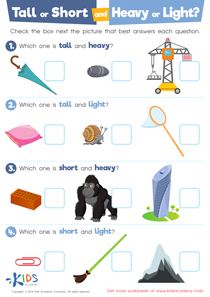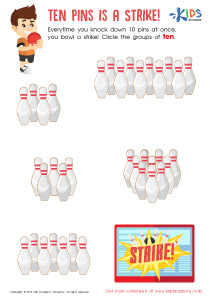Understanding sequencing Easy Kindergarten Math Worksheets
3 filtered results
-
From - To
Discover our "Understanding Sequencing Easy Kindergarten Math Worksheets," designed to enhance early math skills through fun and engaging activities. These worksheets introduce young learners to the concept of sequencing, helping them develop logical thinking and pattern recognition. With age-appropriate exercises, children will practice ordering numbers, events, and shapes, reinforcing their counting abilities and critical reasoning. The engaging designs make learning enjoyable while encouraging creativity and concentration. Ideal for teachers and parents alike, these resources provide a foundation for mastering math concepts. Start your child's math journey today with our interactive and easy-to-use worksheets, perfect for young learners in kindergarten!
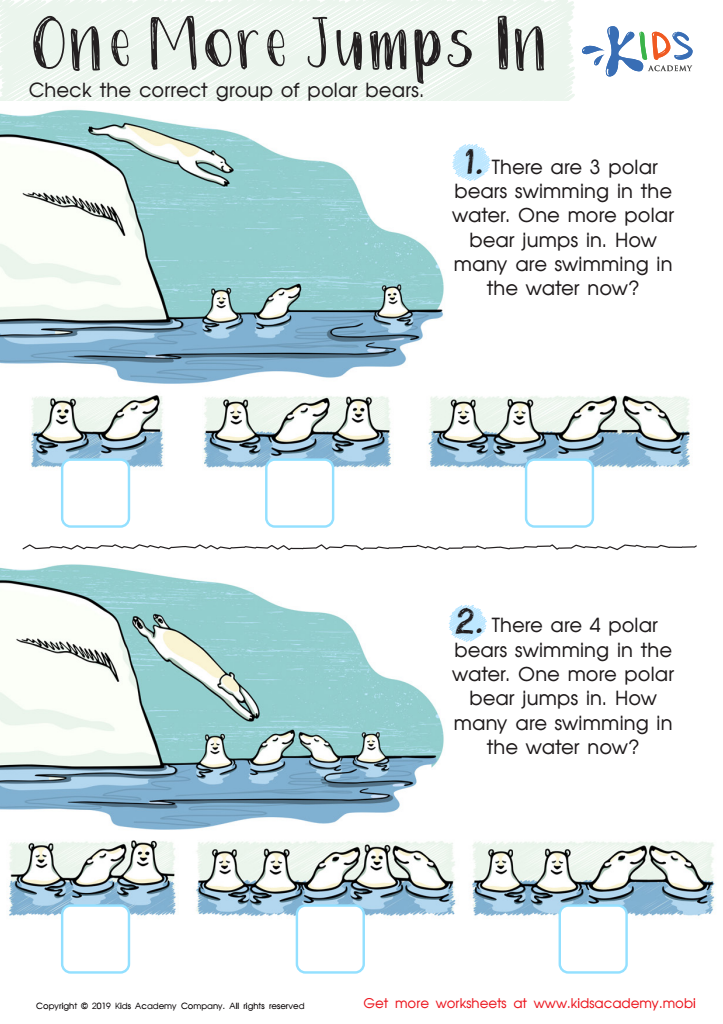

One More Jumps In Worksheet
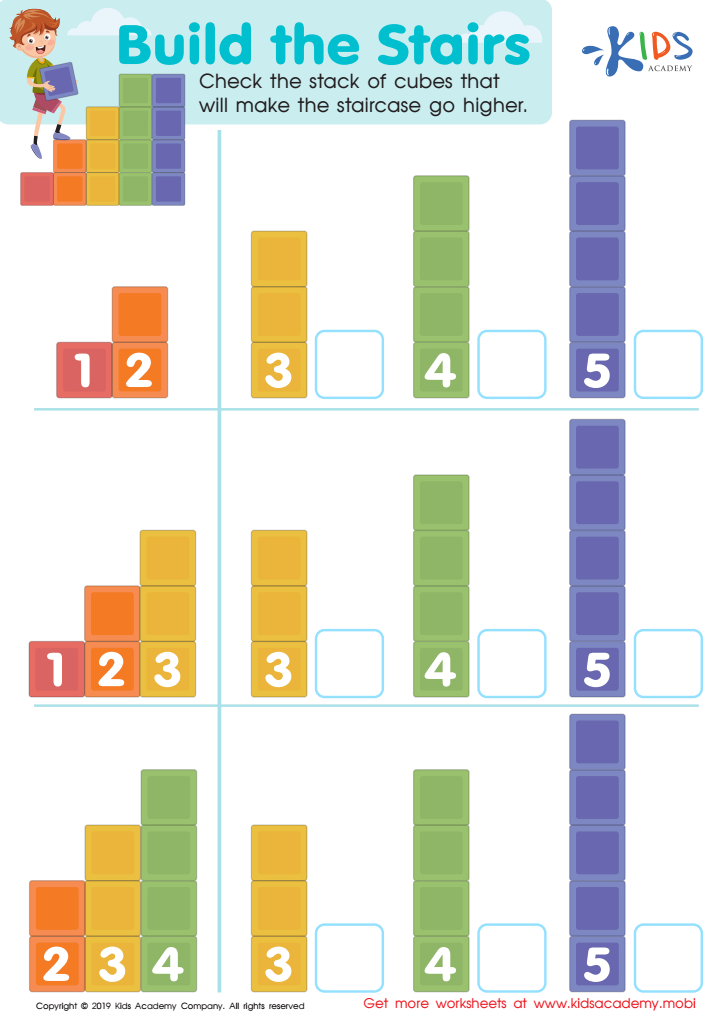

Build the Stairs Worksheet
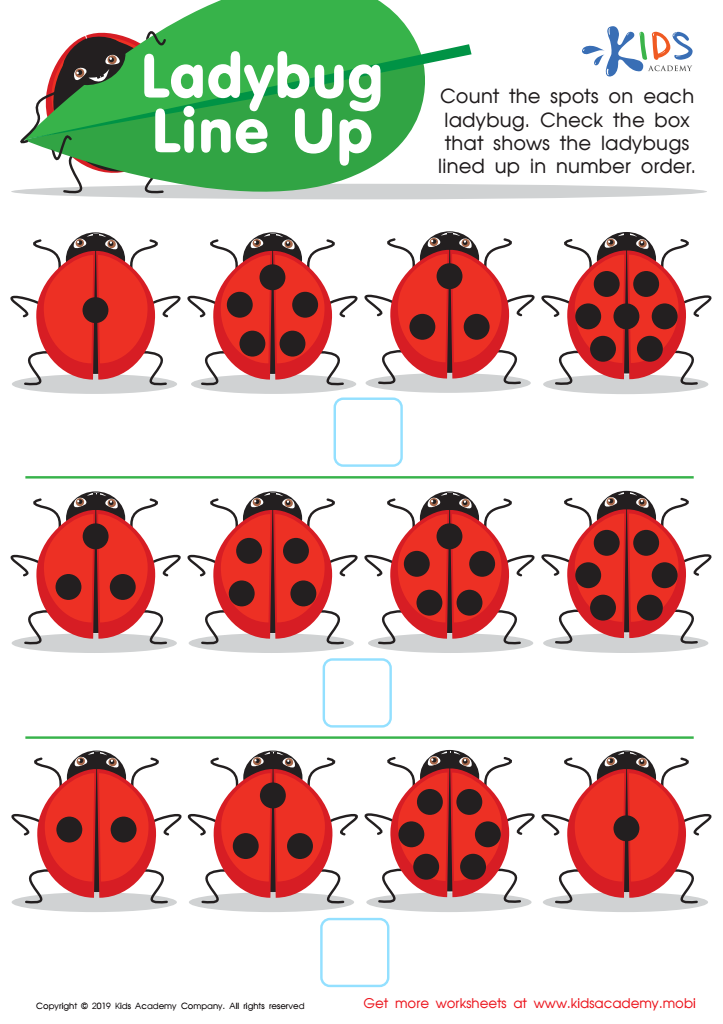

Ladybug Line Up Worksheet
Understanding sequencing is crucial in early childhood education, particularly in kindergarten math, as it lays the foundation for many essential cognitive skills. For parents and teachers, recognizing the importance of sequencing tasks helps children develop critical thinking, problem-solving abilities, and strengthen their overall mathematical understanding.
Sequencing involves arranging items or events in a specific order, which is a vital concept in mathematics and everyday life. When children learn to recognize patterns and sequences, they become better equipped to solve complex problems, understand basic addition and subtraction, and even progress to more advanced math concepts, such as multiplication and division later on.
Additionally, mastering sequencing enhances children's reading and comprehension skills. It aids them in understanding story structures, following directions, and organizing their thoughts. This foundational skill supports their overall academic growth and development.
Moreover, engaging children in sequencing activities, whether through stories, math games, or hands-on experiences, makes learning interactive and enjoyable, fostering a love for learning from an early age. Therefore, parents and teachers should actively promote and support sequencing in their classrooms and homes, ultimately nurturing well-rounded, confident learners prepared for future educational challenges.

 Assign to My Students
Assign to My Students


.jpg)






